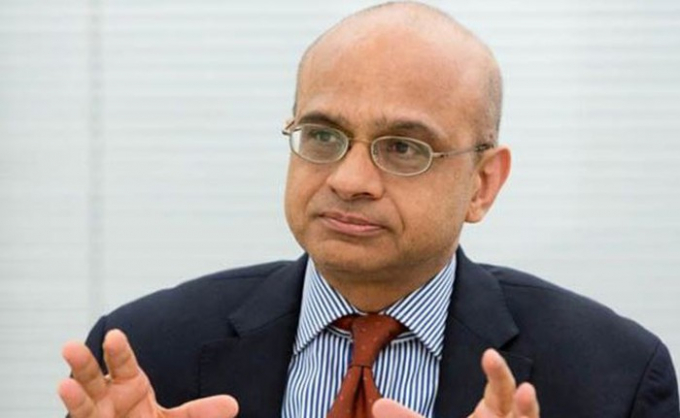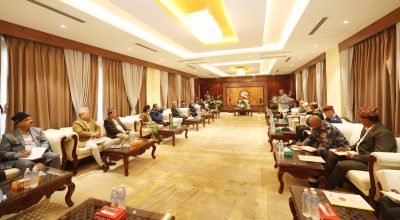
NEW DELHI – Israel’s devastating war in Gaza, Russia’s bloody invasion of Ukraine, America’s extraterritorial assassinations, and China’s aggressive expansionism all point to one conclusion: the global system that emerged after World War II is giving way to a world without order. But while the upheaval is undeniable – and being compounded by a reshuffling of trade and investment flows, rapid technological advances, and profound demographic shifts – what will emerge from it remains an open question.
The coming transition could be illuminated or even accelerated by the outcome of key elections this year, when 4.2 billion people will be eligible to vote in 76 countries, making 2024 the biggest election year in history. Elections will be held in eight of the world’s ten most populous countries (Bangladesh, Brazil, India, Indonesia, Mexico, Pakistan, Russia, and the United States) – and the European Union.
This year’s raft of elections will serve as a gauge of the state of democracy globally. With autocracy on the rise, there is plenty of cause for concern. In fact, the new year kicked off with controversy-fueled elections in two democracies in the Global South: Bangladesh and Taiwan. In Bangladesh, the opposition boycotted the election altogether, calling it a sham, and as expected, Prime Minister Sheikh Hasina secured a fourth consecutive term in office.
Bangladesh is not the only country where elections this year will bring no surprises. Russian President Vladimir Putin will undoubtedly be “elected” to another term. Assuming he completes it, he will have surpassed Soviet leader Josef Stalin as the longest-serving Russian ruler since Catherine the Great. In Pakistan, the election result is practically a moot point, since the military will ultimately remain in control.
But even true democracies are at risk of a rightward lurch in upcoming elections, continuing a trend seen in Finland (a freshly minted NATO member) and, most recently, in Argentina. While Poland bucked this trend, the upcoming European Parliament elections – the first since Brexit – appear likely to prolong it.
Right-wing politics can tilt the scales from peace to war. Consider Israel: though the catalyst of the war in Gaza was the horrific terrorist attack carried out by Hamas on October 7, the hardline policies pursued by Israeli Prime Minister Binyamin Netanyahu’s far-right government – the most nationalist in Israel’s history – undeniably set the stage for conflict.
But this is not always the case. In the US, President Joe Biden’s national-security team largely comprises “liberal interventionists” – essentially, hawks on the left – whereas many on the right can be considered non-interventionists (or, as their critics call them, “isolationists”).
Elections are not everything. Numerous dangerous trends in international relations have persisted across election cycles. Longstanding rules and norms – including non-intervention and non-interference in other countries’ internal affairs, and the prohibition of territorial conquest – have increasingly been flouted in recent years, often by those that preach adherence to them most loudly. The countries that made the rules – starting with the US – have proved all too willing to disregard them when their perceived interests are at stake.
Meanwhile, the influence of international institutions such as the United Nations is waning, as the Western countries that established them resist structural reforms that would better align global governance with current geopolitical realities. All of this is undermining the rules-based order that the West claims to be trying to preserve.
Other efforts to preserve the West’s global supremacy have also proved counterproductive. For example, the routine use of sanctions as an instrument of foreign policy and the weaponization of finance are encouraging non-Western states to pursue “de-dollarization” – an effort gaining momentum in oil markets – and parallel financial arrangements. On January 1, the BRICS grouping (Brazil, Russia, India, China, and South Africa) expanded its membership to include Egypt, Ethiopia, Iran, Saudi Arabia, and the United Arab Emirates. Rifts between East and West, North and South, are widening.
As global tensions rise, countries are increasingly embracing protectionist and nationalist economic policies, raising the specter of economic fragmentation and the emergence of rival trading blocs. This trend could not only impede economic growth and development but also threaten peace. Recall that a similar shift from multilateral trade toward trade within geopolitical blocs in the 1930s fueled tensions that eventually contributed to World War II.
The risk of Chinese aggression against Taiwan appears particularly acute. The victory of the pro-sovereignty Lai Ching-te in the island’s recent presidential election, together with mounting global turbulence and China’s own economic slowdown, could lead Chinese President Xi Jinping to decide that China’s window of opportunity to impose unification on Taiwan is closing fast.
Any way one looks at it, a major geopolitical reconfiguration is underway. The outcome will depend significantly on developments over the next year.
Brahma Chellaney, Professor of Strategic Studies at the New Delhi-based Center for Policy Research and Fellow at the Robert Bosch Academy in Berlin, is the author of Water, Peace, and War: Confronting the Global Water Crisis (Rowman & Littlefield, 2013).
Copyright: Project Syndicate, 2024.
www.project-syndicate.org
















